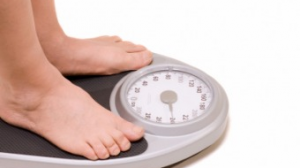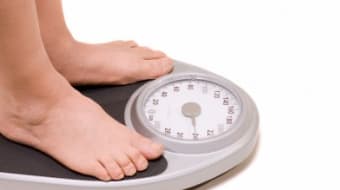
Someone recently asked me if it is really so terrible to be overweight. She added that her grandmother, who lived to the ripe old age of 91, was always pudgy. I got to thinking about her question, and although her grandmother may indeed have experienced longevity despite an above-normal weight, the bottom line is that it is hard to argue with statistics, all of which indicate that for the general population, being overweight diminishes your quality of life and can even shorten it. There are people who live long who are overweight, but what is their quality of life?
Being overweight is known to cause heart disease, various cancers, digestive problems, fatty liver disease, type 2 diabetes, high cholesterol, sleep apnea and osteoarthritis, and more. Perhaps you are one of those handfull of lucky people who have great genes, but even that will only get you so far.
We live in a prosperous society. Even duringrecent financial crises, few had to wait in line to receive handouts of bread as they did during the Great Depression. Food abounds everywhere and fast foods are relatively cheap.
There is hardly an establishment today that doesn’t deliver, and burger places and pizza shops are on every corner, or at least relatively close by. Ordering take out is easier than cooking. Most of all, we have lost our awareness of true hunger and of what feeling full is. Even those who try to eat healthy foods tend to eat too much of it. In the United States alone, Americans expend 400 billion dollars a year just on cardiac-related illness, and health care costs continue to soar.
This begs the obvious question: What is normal weight? The answer is not as clear as it would seem to be. Most people assess their weight the old-fashioned way – by a number on the scale. And you can certainly access normal weight charts online. However, the most common – and easiest – way to ascertain normal weight today is the Body Mass Index, or BMI. BMI is determined by calculating the individual’s body weight divided by the square of his or her height, using meters for height and kilograms for weight. Using a BMI chart simplifies this process. A reading of 18-24 indicates that your weight should not affect your health negatively. A reading of 25-29 is borderline and is called overweight. This may bring health issues but what is certain is that according to statistics, if your BMI is 30 or more, one or more health issues will creep up on you eventually.
In addition, your percentage of body fat plays a key role in assessing a healthful weight. The best way to determine your body fat is to have measurements taken of skin folds at certain locations on your body. This should be done by an experienced professional. Circumference measurements also tell us a lot—meaning your waist and hip and what the ratio is between them.
There will always be “those” people… the ones who can “get away with” being overweight.” But as we age, and carry around those extra pounds that our bodies are not really built to be lugging around, we WILL begin to experience soreness in the knees, ankles and lower back. Summer weather will cause us to feel several degrees warmer than those who are able to maintain an appropriate weight. So even if you are fortunate enough to have those protective genes against the numerous ailments caused by being overweight, it is nearly guaranteed that you will still feel the effects of the extra weight in some way.
One thing that is very important to remember in weight loss: If you want to lose it and keep it off, and do it in a healthy manner, DON’T DIET. See a good dietician or nutritionist that specializes in weight loss and get a good food plan that is maintainable and doable. 97% of people who diet gain it back—don’t invest in a sure failure. Combine your proper eating with a well-rounded exercise program and then work off the weight a pound at a time. Being sedentary because you are naturally skinny isn’t necessarily a ticket to good health. EVERYONE NEEDS TO EXERCISE! Don’t be in a hurry and just let it all melt away over time. Remember, every pound you lose is a pound of health you gain.
Keeping a normal weight by incorporating good and nutritious eating and exercise into you daily routine is integral to your health and quality of life. It is another way to “add hours to your day, days to your year and years to your life.”
Alan Freishtat is an A.C.E. CERTIFIED PERSONAL TRAINER and a BEHAVIORAL CHANGE and WELLNESS COACH with over 19 years of professional experience. Alan is the creator and director of the “10 Weeks to Health” program for weight loss. He is available for private coaching sessions, consultations, assessments and personalized workout programs both in his office and by telephone and skype. Alan also lectures and gives seminars and workshops. He can be reached at 02-651-8502 or 050-555-7175, or by email at alan@alanfitness.com Check out the his web site –www.alanfitness.com US Line: 516-568-5027.
The words of this author reflect his/her own opinions and do not necessarily represent the official position of the Orthodox Union.

